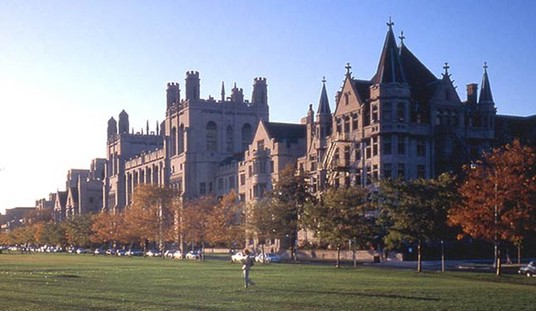The conviction of Johannes Mehserle yesterday in a Los Angeles courtroom for involuntary manslaughter won’t be the end of the court battle for the BART police officer who shot an unarmed man in a BART station. The appeals will take years, of course, but Mehserle could have a second battle to fight. The US Department of Justice is now weighing civil-rights charges against Mehserle, who is white, for the killing of the black victim while on duty:
The U.S. Department of Justice will conduct an independent review of the Johannes Mehserle case in order to determine whether or not the shooting merits federal prosecution, according the department.
“The Justice Department has been closely monitoring the state’s investigation and prosecution,” the department said in a statement.
“The Civil Rights Division, the U.S. Attorney’s Office, and the FBI have an open investigation into the fatal shooting and, at the conclusion of the state’s prosecution, will conduct an independent review of the facts and circumstances to determine whether the evidence warrants federal prosecution.”
A few readers have sent e-mail questioning whether this violates the Fifth Amendment bar on double jeopardy. In terms of precedent, the answer would be no. The federal government began using civil-rights laws decades ago to prosecute people who had escaped justice for murders and assaults against minorities, and the courts have supported those prosecutions. The interpretation of the double-jeopardy clause has been that it applies to each sovereign individually but not in combination, meaning a state can try someone for a particular act and the feds can also try them, assuming the act also violates a particular federal law. Civil rights laws were designed for that purpose, at a time when minorities couldn’t get justice in some state courts.
That doesn’t lessen the controversy over the use of such powers. When George H. W. Bush pursued civil-rights prosecutions against the police officers in the Rodney King beating, many objected to it over the obvious attempt to reverse the acquittal given to the men in state courts. That has given these prosecutions an aroma of revenge rather than justice, a way for the federal government to interfere in the sovereignty of states arbitrarily when the administration doesn’t like the outcomes. Glenn Beck made that argument today, as The Right Scoop notes.
What makes this odd is that revenge isn’t really an issue. The case resulted in a conviction — and one that will make it hard to argue for a civil-rights violation. Involuntary manslaughter means that the police officer lacked the intent to commit murder (at least according to the jury that weighed the evidence). While some may be unhappy that the jury didn’t find Mehserle guilty of murder, especially and understandably the family, Mesherle didn’t escape justice. He will face prison time in this conviction, signaled by the fact that the judge who will sentence him didn’t let him out on bail pending that sentencing. There doesn’t appear to be a good reason for the DoJ to intercede in this case.
And they probably won’t. All they did was announce that they would review the case, but with Mehserle going to prison and the DoJ already fighting another political battle on civil-rights enforcement in the voter-intimidation case that blew up in their faces, it’s more likely that the announcement was intended to cool public ire in Oakland over the verdict.
Update: For the sake of accuracy, Mehserle did not belong to the Oakland police department, but to the transportation police.







Join the conversation as a VIP Member